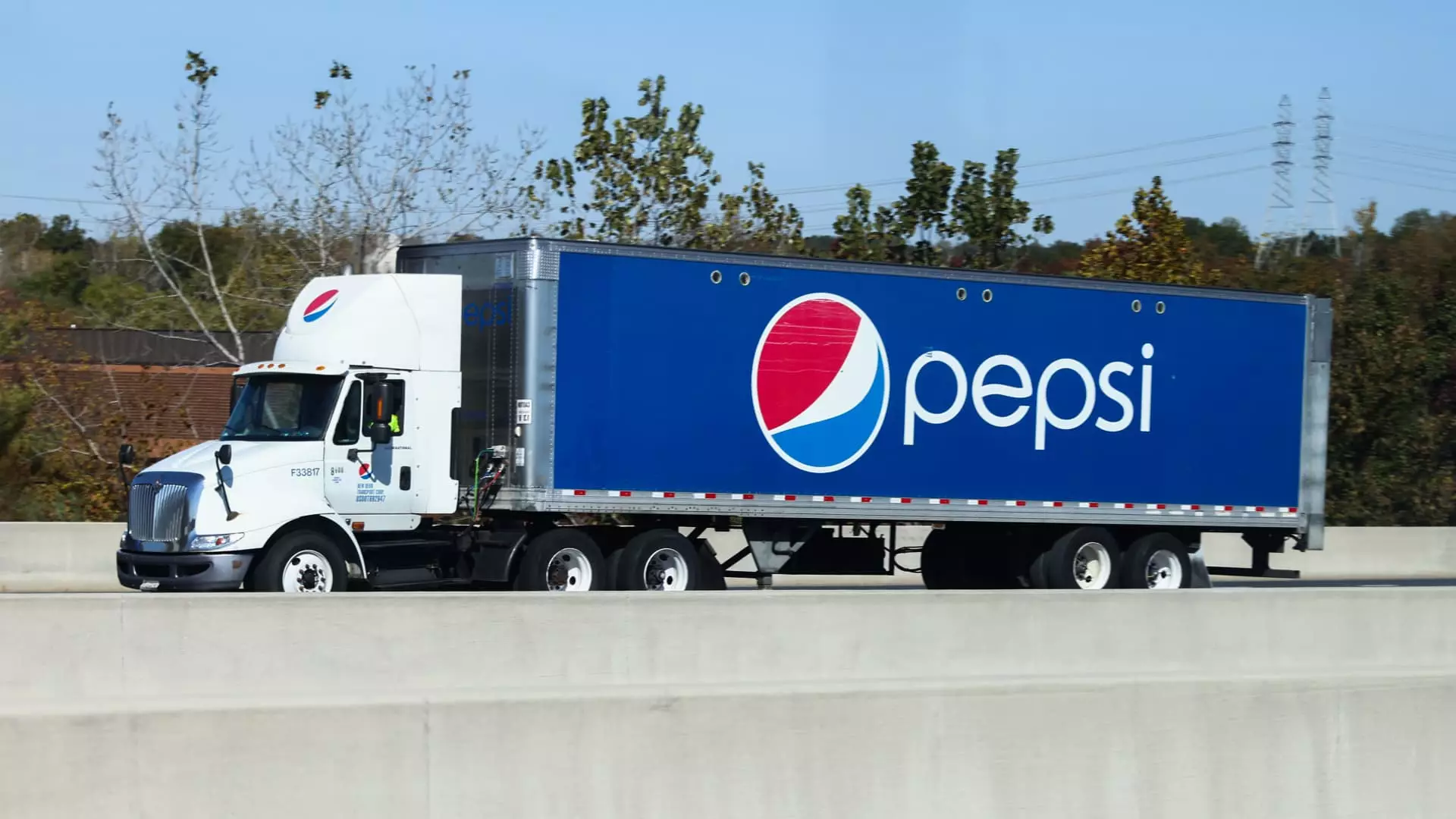The recent quarterly performance report from PepsiCo reveals a series of challenges that have compelled the company to lower its projections for organic revenue in the ongoing financial year. With two consecutive quarters failing to meet sales expectations, the softening demand in core markets, compounded by quality issues related to Quaker Foods products, poses significant concerns for the beverage and snack giant.
In its latest earnings release, PepsiCo reported third-quarter net income attributable to the company amounting to $2.93 billion, translating to $2.13 per share. This figure is a decline from the previous year’s earnings of $3.09 billion, or $2.24 per share, highlighting a worrying trend in profitability. The slight dip in overall revenue—down 0.6% to $23.32 billion—was below analysts’ expectations, where forecasts were set at approximately $23.76 billion.
The company’s organic revenue, which excludes the effects of acquisitions, divestitures, and foreign currency fluctuations, registered a modest increase of 1.3% for the quarter. While this might seem positive at first glance, it underscores a declining demand for both snacks and beverages, particularly in North America, where volumes shrank 2% across both segments. Such performance raises serious questions about consumer behavior and brand loyalty in an increasingly competitive landscape.
One of the major contributors to these unfavorable results is the fallout from recalls associated with Quaker Foods North America. After issuing its first recall due to potential salmonella contamination in December, the company faced mounting difficulties. In January, the recall was broadened, and by June, a plant linked to these issues had been permanently closed. Although management asserts that the negative impact of these events is waning, the immediate consequences still ripple through the company’s performance metrics.
This situation serves as a stark reminder of the importance of quality control in food production. Regardless of the market sector, a single misstep can lead to long-lasting repercussions in brand reputation and financial health. As PepsiCo strives to recover from this setback, restoring consumer trust will be paramount.
As a result of these challenges, PepsiCo has adjusted its revenue growth outlook for 2024. Initially forecasting a growth rate of 4%, the company now anticipates a more conservative low-single-digit increase in organic revenue. This shift signals not only an acknowledgment of current market realities but also a warning to stakeholders who might expect robust growth in the near future.
Despite these temporary hurdles, PepsiCo remains confident about the long-term trajectory of its core constant currency earnings per share, maintaining a projection of at least 8% growth. Such optimism may stem from the company’s diverse portfolio, including popular brands like Gatorade and its successful snack lines, which, despite experiencing some volume declines, are receiving renewed focus in terms of value offerings and improved availability.
In response to the declining sales and shifts in consumer behavior across various income levels, PepsiCo executives are advocating for a strategic reevaluation of their product offerings and market strategies. The company’s Frito-Lay North America division, for instance, reported a 1.5% decline in volume, prompting executives to rethink how they deliver value to consumers.
As the broader categories of salty and savory snacks continue to struggle this year—underperforming when compared to their historical standards—PepsiCo finds itself at a critical crossroads. The company must innovate and adapt while ensuring both existing and prospective consumers feel confident in the quality of their products.
In summation, PepsiCo’s recent earnings report highlights a myriad of challenges that could shape its trajectory in the coming years. The slowing growth, adverse consequences from recalls, and changing consumer behaviors urge the company to move thoughtfully into the future. While PepsiCo embraces some growth forecasts, the emphasis on recovery and trust-building becomes imperative. Only through strategic adjustments and operational enhancements can PepsiCo aim to reclaim its position as a leader in the ever-evolving food and beverage sector.


Leave a Reply